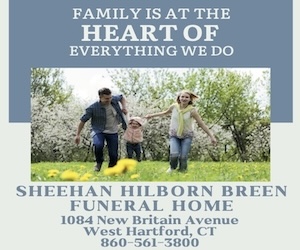By Cindy Mindell
NEW HAVEN – Yale University offers several alternative spring break options, many inspired or originated by the Joseph Slifka Center for Jewish Life at Yale.
Slifka got involved 10 years ago with American Jewish World Service’s alternative spring break program. A group of students who participated the first year were so inspired by the experience that they founded Reach Out, the Yale College Partnership for International Service, which sponsors several alternative spring break programs every year for Jewish and non-Jewish students alike.
Since Hurricane Katrina, Yale has sponsored an interfaith service learning trip to New Orleans. Originally created by Hillel’s Jewish Campus Service Corps, the program is now organized by the Yale University Chaplain’s Office.
Slifka Center has continued to run its own alternative spring break trips, some through AJWS and one with Hillel Uruguay. For the last two years, Slifka has organized its Alternative Spring Break with EncounTour, a service-learning organization founded by former Yale student Andrew Steinberg, who participated in a Reach Out program and was active with Slifka. Students work on a Guatemalan farmers’ collective through “As Green As It Gets,” a non-profit organization focusing on economic development and environmentally sustainable agriculture in Guatemala.
Guatemala’s coffee-growing industry is dominated by huge agri-business plantations, says Lina Zerbarini, director of operations and associate rabbi at Slifka, making it difficult for small farmers to grow and export their coffee and other products. This year, 15 students did agricultural work, harvested coffee beans, and learned about the growing and marketing process. They studied Jewish texts, and discussed issues of service and social justice, exploring how to contribute to the world as Jews and as Americans.
“One of the reasons we switched to EncounTour is that it has been a positive experience to open our group to non-Jewish students interested in incorporating a spiritual and reflective aspect to their experience,” Zerbarini says. “There are Christian students who want to learn about Judaism in this context, perhaps because they have friends and family members who are Jewish and want to understand Judaism better. For the Jewish participants, when they’re teaching or putting together Shabbat for the group, they can’t make the assumption that everyone knows the rituals and material. It’s an intensely Jewish program with strong community-relations content.”
Rabbi Lauren Holtzblatt, associate rabbi at Slifka, founded the SheHaKol Food Fellowship at Yale, a year-long program that explores food, spirituality, kashrut, and how food choices are made. During spring break, participants spend a week at the Jewish Farm School in Ithaca, N.Y., an environmental educational organization that works to practice and promote sustainable agriculture and to support food systems rooted in justice and Jewish traditions. Students cook, learn Jewish texts related to food and the land, and help with the maple-sugaring process.
“For me, the trip was life-altering in terms of my relationship to food and sustainability, Judaism, and my outlook on life in general,” writes senior Sarah Turbow. “The trip was full of fun, interesting adventures, but by far the most comprehensive experience was at Sapsquatch, where we learned about each step in the maple sugaring process.
“Throughout the week, I had tried to be more actively thankful for the food I was receiving and for the earth that was providing it to me, and this seemed somehow contrary to that belief. But I was also reminded that people who worked at this sugarbush depended on it for their livelihood, and I could not, in good conscience, condemn them for their practices.
“I have never been a foodie. Frankly, knowing where my food came from or how it was produced or how it related to my religion never really factored into my choices about what to eat. My outlook was changed by this trip, however. I simply feel more connected to what I eat. I am more conscious about who was involved in the production of my food, how far it had to travel to get to me, how much energy it took to preserve it, and whether my dollars are going to endeavors I morally support. I have no desire to become a full-blown foodie, and I am aware of not being judgmental about other people’s approach to food. But if anything, this trip taught me to be a more deliberate human being. Really thinking about the consequences of my food choices is one of the ways in which I can do that.”
“Alternative spring break has always been very near and dear to my heart,” says Zerbarini, who founded Spring Break in New Haven three years ago. “We go on these programs to help communities a thousand miles away, but you can go only a few blocks to see real need,” she says. “We look at the issues facing the city – economic development, youth, hunger, homelessness. But we also do fun stuff: rent bikes and ride to Lighthouse Point, eat in restaurants, go to Long Wharf Theatre. We introduce students to the city on a much broader scale and learn how Yale alumni have made a difference, through starting non-profits or working with the city.”
The program, funded by the university and now run by the Chaplain’s Office, mostly appeals to a significant proportion of international students who can’t go home for break, Zerbarini says. While it is not the only program of its kind at Yale, it is unique in its emphasis on the benefits of New Haven.








 Southern New England Jewish Ledger
Southern New England Jewish Ledger










Comments are closed.